.png) By Anna Wiggins
By Anna Wiggins
I’ve said before that Japan (the fictional Japan of 1990s America, constructed through the distorted lens of its often poorly localized artifacts) almost killed me. That might have been uncharitable of me. Yes, the culture I consumed from Japan was full of crappy gender stereotypes and cross-dressing gags, and it did delay my transition. It hurt me, like so many other things hurt me, without my even being fully aware of it.
But in hindsight, there were some very important moments of validation that came out of those cultural transmissions, too. Some were obvious: Wandering Son aired right as I began my transition, and it did more to make me feel like someone understood than any of the therapists or support groups or forums. Some were more of a secret history, parallel and hidden until much later: Maddie Blaustein’s transition makes me inclined to go a bit easier on Pokémon. And some of these moments were right in front of me, and I knew that they meant something to me but I didn’t know exactly what.
Secret of Mana was released in October of 1993. I’m pretty sure we got it for Christmas that year. By this point, we had a system for RPGs: my brother took the top save slot, and I took the bottom one. The spot(s) in the middle were a no-man’s land; good for temporary saves, but no guarantees on whether they’d get overwritten. And at first, that’s exactly what happened. He took save #1, I took save #4, and we both started playing through the game.
Except, after the first few hours, we realized that this game was multiplayer. After that, we abandoned save #4, and only played when we were both able to play. This wasn’t the first cooperative game I’d ever played (Bubble Bobble and Gauntlet come to mind), but it was certainly the first one I fell in love with, and that made me realize just how much I preferred cooperative gameplay to competitive.
Secret of Mana has three playable characters: Randi, the boy-turned-accidental-hero protagonist; Primm, the competent and determined nobleman’s daughter, and Popoi, the sprite child. Now, my brother immediately chose the boy, which was fine by me. And the standard trans narrative goes “and I picked the girl, because I always picked the girl.” Except I didn’t. I never did. I was afraid of associating with anything the least bit feminine, because I was afraid people would somehow know about the thoughts I had. The ones I tried to keep myself from noticing.
And so I chose Popoi. The Japanese release of Secret of Mana carefully avoids ever using a gendered pronoun for Popoi; they are explicitly intended to be ambiguously gendered. The US localization slipped up a bit, and uses ‘he’ a handful of times. But mostly, Popoi is basically genderless. Many of the spoken references to them are not kind – a lot of disdainful “it”s and “that”s – but they don’t seem bothered by it.…
Continue Reading

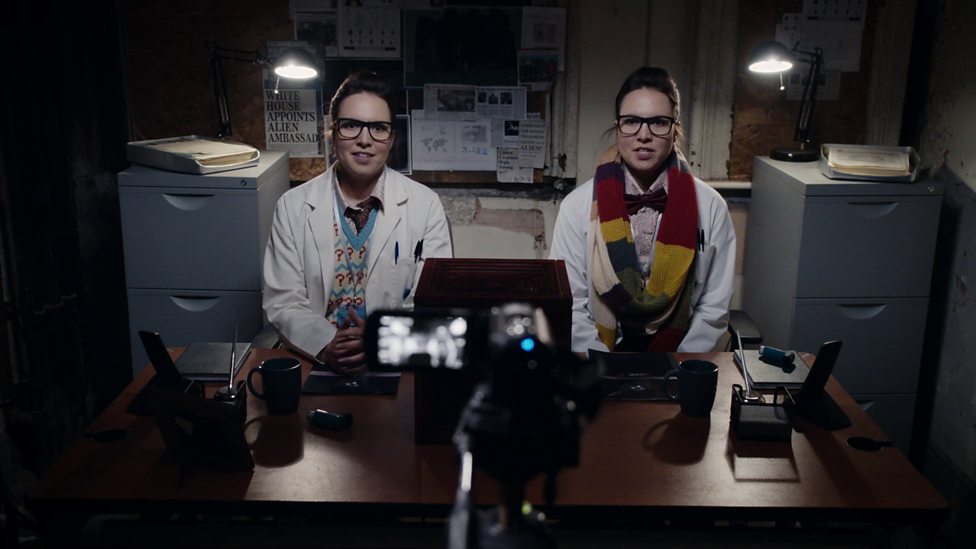 This week we’ve got a very special treat – a double length episode of the Series 9 Podcast in which I’m joined by comics writer Al Ewing, who co-wrote Titan Comics’ Eleventh Doctor comic, and is currently doing Contest of Champions, The New Avengers, and The Ultimates for Marvel. The first hour consists of us talking about The Zygon Invasion, while the back half is a wide-ranging interview about comics and numerous other topics. Yes, you read that right. Our podcast this week is like… a hybrid.
This week we’ve got a very special treat – a double length episode of the Series 9 Podcast in which I’m joined by comics writer Al Ewing, who co-wrote Titan Comics’ Eleventh Doctor comic, and is currently doing Contest of Champions, The New Avengers, and The Ultimates for Marvel. The first hour consists of us talking about The Zygon Invasion, while the back half is a wide-ranging interview about comics and numerous other topics. Yes, you read that right. Our podcast this week is like… a hybrid.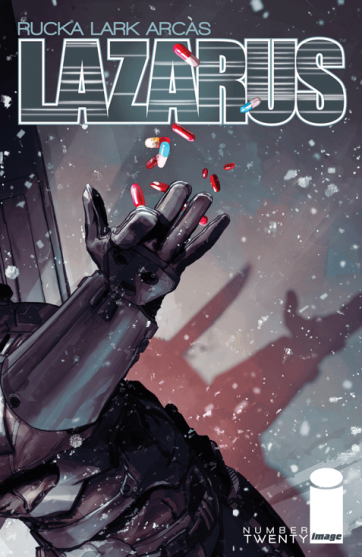 Uncanny X-Men #600
Uncanny X-Men #600 Holly Boson’s epic journey through the Amicus Films catalogue reaches the 1965 film The Skull, which features Christopher Lee, Peter Cushing, and the Marquis de Sade’s skull. One of these things is cursed. Holly is joined this time by Jack Graham. He is not cursed. We think.
Holly Boson’s epic journey through the Amicus Films catalogue reaches the 1965 film The Skull, which features Christopher Lee, Peter Cushing, and the Marquis de Sade’s skull. One of these things is cursed. Holly is joined this time by Jack Graham. He is not cursed. We think.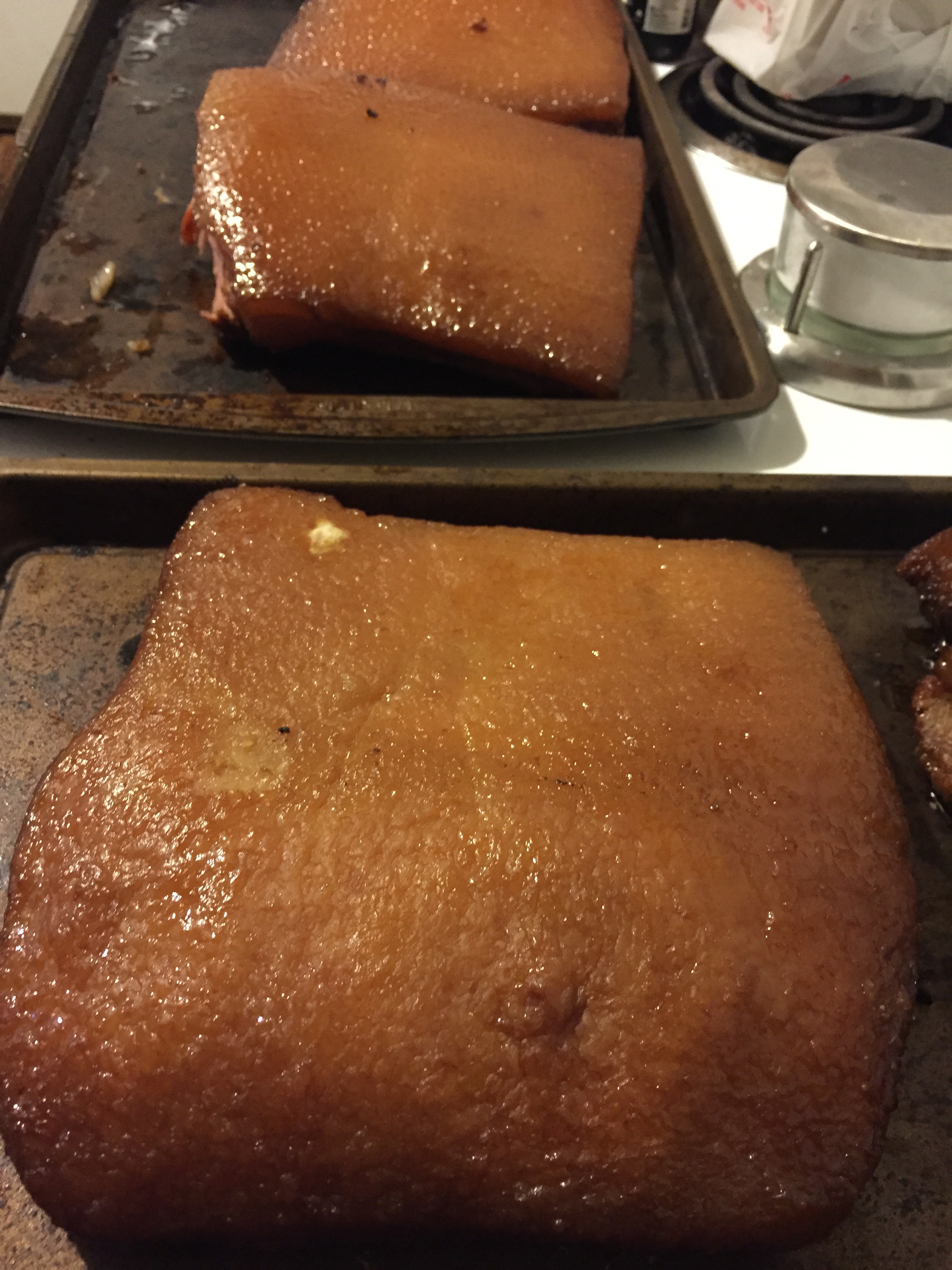
.png) By Anna Wiggins
By Anna Wiggins It is, in many ways, the most Part One of the two-parters we’ve had so far. Which is as it should be. I mean, it comes right out, first thing, and proclaims “we’re doing Zygon ISIS.” Pretty much right there, you’ve justified your second part. This isn’t some premise that requires a stealthy inversion at the halfway mark to work over ninety minutes. This is just an incredibly meaty, dense concept that it would be a travesty to even attempt in forty-five. Which makes it a beast to review, of course, but oh well.
It is, in many ways, the most Part One of the two-parters we’ve had so far. Which is as it should be. I mean, it comes right out, first thing, and proclaims “we’re doing Zygon ISIS.” Pretty much right there, you’ve justified your second part. This isn’t some premise that requires a stealthy inversion at the halfway mark to work over ninety minutes. This is just an incredibly meaty, dense concept that it would be a travesty to even attempt in forty-five. Which makes it a beast to review, of course, but oh well.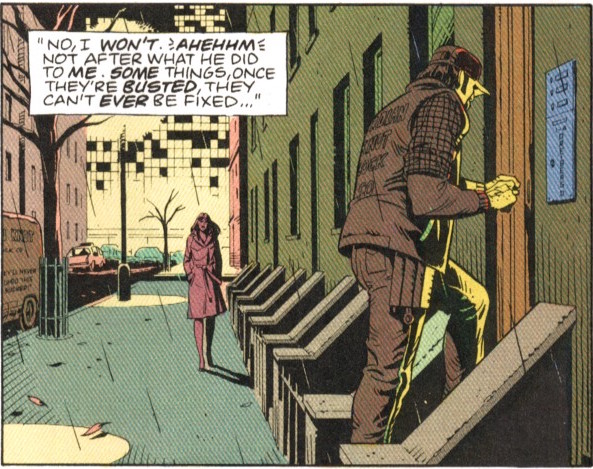 What’s perhaps odd is that Moore did not, at least at first, really differ from that belief. Indeed, the way in which Moore describes his falling out with the company is telling: “I was starting to realize that DC weren’t necessarily my friends.” Because it’s crucial to realize, Moore really did think they were. That’s the entire reason he never actually read the Watchmen contract: he trusted the people handing it to him had his best interests at heart. This was, of course, many things; hopelessly naive, for one. An almost inevitable extension of his honor among thieves approach to creating art, for another. But, perhaps most crucially, it was more or less how people like Paul Levitz were encouraging him to think. And so when Levitz subsequently got into a dispute with Moore and Gibbons shortly after Watchmen launched over whether or not they deserved royalties on the replica bloodstained yellow smiley badges that were being widely sold in comic shops (a dispute that was over, at most, a couple thousand dollars) and made a grand show of agreeing to a royalty without conceding the legal point by which DC had originally argued the badges, despite being sold in comic shops, were “promotional items,” Moore was understandably rattled, minor as the issue was. And when, later in 1986, Jeanette Kahn had lunch with Moore and Gibbons and made an off-handed comment about doing some Watchmen prequels and how “of course we wouldn’t do this if you were still working for us,” Moore was once again rattled by what he took as a threat. Indeed, as Moore put it when describing the incident in an interview four years later, “I really, really, really don’t respond well to being threatened. I couldn’t tolerate anyone threatening me on the street; I couldn’t tolerate anyone threatening me in any other situation in my life. I can’t tolerate anyone threatening em about my art and my career and stuff that’s as important to me as that. That was the emotional breaking point. At that point there was no longer any possibility of me working for DC in any way, shape, or form.”
What’s perhaps odd is that Moore did not, at least at first, really differ from that belief. Indeed, the way in which Moore describes his falling out with the company is telling: “I was starting to realize that DC weren’t necessarily my friends.” Because it’s crucial to realize, Moore really did think they were. That’s the entire reason he never actually read the Watchmen contract: he trusted the people handing it to him had his best interests at heart. This was, of course, many things; hopelessly naive, for one. An almost inevitable extension of his honor among thieves approach to creating art, for another. But, perhaps most crucially, it was more or less how people like Paul Levitz were encouraging him to think. And so when Levitz subsequently got into a dispute with Moore and Gibbons shortly after Watchmen launched over whether or not they deserved royalties on the replica bloodstained yellow smiley badges that were being widely sold in comic shops (a dispute that was over, at most, a couple thousand dollars) and made a grand show of agreeing to a royalty without conceding the legal point by which DC had originally argued the badges, despite being sold in comic shops, were “promotional items,” Moore was understandably rattled, minor as the issue was. And when, later in 1986, Jeanette Kahn had lunch with Moore and Gibbons and made an off-handed comment about doing some Watchmen prequels and how “of course we wouldn’t do this if you were still working for us,” Moore was once again rattled by what he took as a threat. Indeed, as Moore put it when describing the incident in an interview four years later, “I really, really, really don’t respond well to being threatened. I couldn’t tolerate anyone threatening me on the street; I couldn’t tolerate anyone threatening me in any other situation in my life. I can’t tolerate anyone threatening em about my art and my career and stuff that’s as important to me as that. That was the emotional breaking point. At that point there was no longer any possibility of me working for DC in any way, shape, or form.”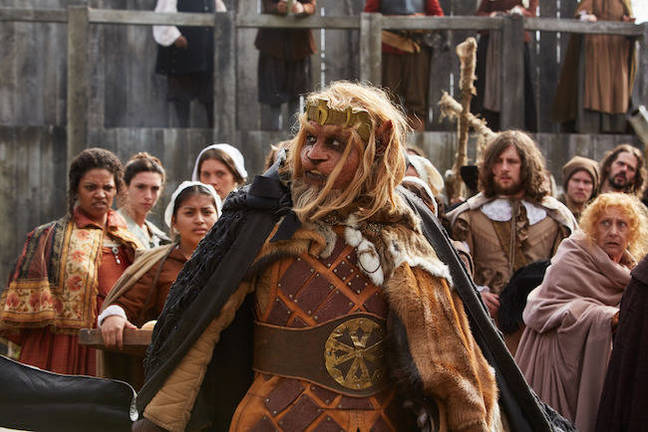 This week I’m joined by Caitlin Smith, aka
This week I’m joined by Caitlin Smith, aka